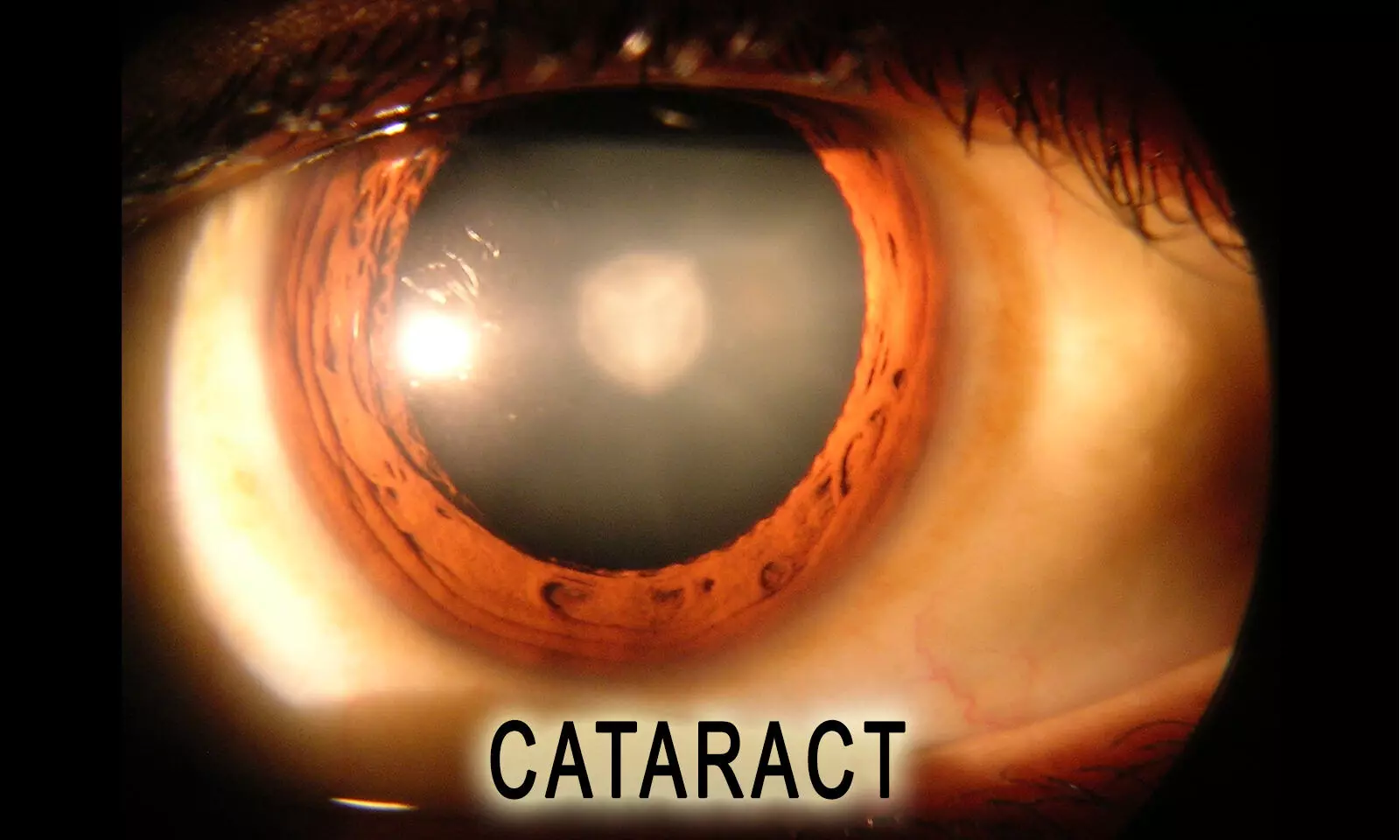- Home
- Medical news & Guidelines
- Anesthesiology
- Cardiology and CTVS
- Critical Care
- Dentistry
- Dermatology
- Diabetes and Endocrinology
- ENT
- Gastroenterology
- Medicine
- Nephrology
- Neurology
- Obstretics-Gynaecology
- Oncology
- Ophthalmology
- Orthopaedics
- Pediatrics-Neonatology
- Psychiatry
- Pulmonology
- Radiology
- Surgery
- Urology
- Laboratory Medicine
- Diet
- Nursing
- Paramedical
- Physiotherapy
- Health news
- AYUSH
- State News
- Andaman and Nicobar Islands
- Andhra Pradesh
- Arunachal Pradesh
- Assam
- Bihar
- Chandigarh
- Chattisgarh
- Dadra and Nagar Haveli
- Daman and Diu
- Delhi
- Goa
- Gujarat
- Haryana
- Himachal Pradesh
- Jammu & Kashmir
- Jharkhand
- Karnataka
- Kerala
- Ladakh
- Lakshadweep
- Madhya Pradesh
- Maharashtra
- Manipur
- Meghalaya
- Mizoram
- Nagaland
- Odisha
- Puducherry
- Punjab
- Rajasthan
- Sikkim
- Tamil Nadu
- Telangana
- Tripura
- Uttar Pradesh
- Uttrakhand
- West Bengal
- Medical Education
- Industry
Cataract surgery significantly improves cognition among elderly with mild cognitive impairment

A recent study published in Acta Ophthalmologica investigated the impact of cataract surgery on cognitive function, particularly in patients with mild cognitive impairment (MCI) and dementia.The conclusion drawn from this investigation implies a significant association between cataract surgery and increased cognitive test scores in older patients with MCI. The study was conducted by Yuto Yoshida and colleagues.
In a prospective observational study focusing on individuals aged 75 and older, researchers investigated the impact of cataract surgery on cognitive function, particularly in patients with mild cognitive impairment (MCI) and dementia. The study, conducted between 2019 and 2021, examined changes in cognitive assessments before and 3 months after cataract surgery using the Mini-Mental State Examination (MMSE) and MMSE for the visually impaired (MMSE-blind).
Out of the 132 patients initially screened, 88 met the inclusion criteria. Among these patients, 39 were categorized into the dementia group, while 49 were classified in the MCI group. Notably, the MCI group showed significant improvement in MMSE scores from pre-surgery (25.65 ± 1.03) to post-surgery (27.08 ± 1.99) and MMSE-blind scores from pre-surgery (18.04 ± 1.14) to post-surgery (19.41 ± 2.01) (both p < 0.001).
The study findings indicated a noteworthy enhancement in cognitive function following cataract surgery, especially in patients with MCI compared to those with dementia. Statistical analysis revealed a substantial likelihood of improvement in cognitive function in the MCI group post-surgery when compared to the dementia group (odds ratio, 2.85; 95% confidence interval, 1.02–7.97; p = 0.046).
Importantly, the study suggests that the extent of cognitive improvement post-surgery might be closely linked to the patient's preoperative cognitive state.
These findings provide promising insights into the potential cognitive benefits of cataract surgery, particularly for individuals experiencing mild cognitive impairment. However, further research is warranted to comprehensively understand the underlying mechanisms and the long-term impact of cataract surgery on cognitive function in the elderly population.
Reference:
Dr Riya Dave has completed dentistry from Gujarat University in 2022. She is a dentist and accomplished medical and scientific writer known for her commitment to bridging the gap between clinical expertise and accessible healthcare information. She has been actively involved in writing blogs related to health and wellness.



